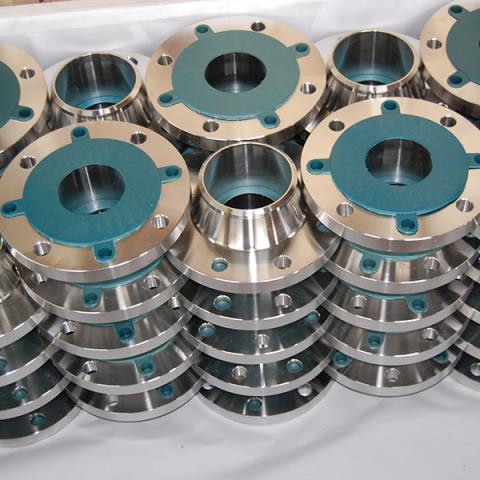Piping expansion joints find their way into just about any piping system that needs flexibility. Often a necessary evil that is considered a weak link, piping expansion joints can also be the hero, saving rotating pieces of equipment from surge force or water hammer events. So, does our industry supply expansion joints to the food and beverage and food processing industries? You bet! The food and beverage and food processing industries use many expansion joint products, including slip joints for steam, metal expansion joints for high temperature applications, rubber piping joints for lower temperature applications and ducting joints for boiler applications.
For the purpose of this discussion by Fluid Sealing Association members, we are on the rubber piping and ducting expansion joint side of the equation. When selecting expansion joints for operations, it is important to know the following: Ss Weld Neck Flange

In the design phase, it is important to understand what type of movements are to be expected as well as to account for any contractor misalignment or provide guidance on misalignment tolerance. The Fluid Sealing Association members recommend alignment of piping should be within 1/8 of an inch. Guiding and proper pipe supports should be considered in design, as expansion joints are not meant to carry the dead weight of the system.
So, what rubber elastomer material do I choose for my application? Are expansion joints installed in piping where there are foods flowing through, or are expansion joints installed in piping where there is process water? Care and thought should be taken when selecting the right elastomer for the job. The expansion joint industry can supply food grade elastomers in ethylene propylene diene monomer (EPDM), chloroprene, nitrile and polytetrafluoroethylene (PTFE).
PTFE ensures the food being processed is not contaminated. For those applications where there are potable water requirements, it is suggested to use American National Standards Institute (ANSI)/National Sanitation Foundation (NSF) 61 materials such as EPDM or nitrile. Please consult an expansion joint manufacturer on which material to use during the design phase or upon retrofit of an existing system.
Reliability in a food and beverage or food processing operation can be critical. Expansion joint manufacturers are apt to work with maintenance and planning personnel at these plants to evaluate the performance of expansion joint products to ensure reliability and point out potential issues that can result in down time and lost revenue. Surveys can be performed and reports can be formulated. Tagging expansion joints and keeping a log or spreadsheet on replacement helps keep focus on reliability. Contact a local expansion joint expert if interested in expansion joint reliability.

Forged Stainless Steel Flanges Rob Coffee is the vice president of sales and marketing for Proco Products, Inc. He has 42 years of experience selling expansion joints and is a past president of the Fluid Sealing Association.